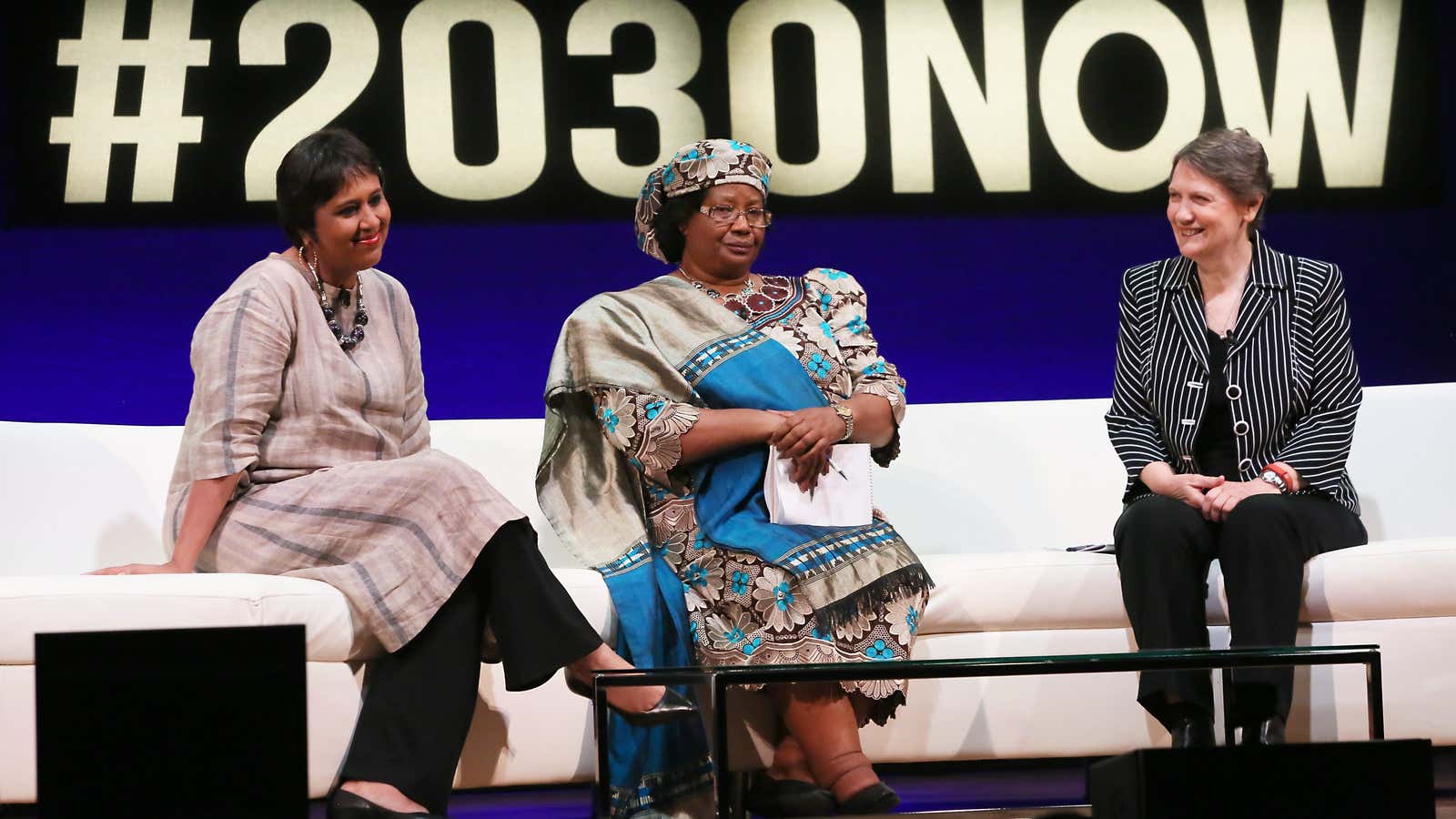I average about one Twitter @-mention per day. (Yes, I don’t tweet much.) Yesterday, I got more than 100.
The reason: I had spent a few days on a visit (organized and paid for by the UN Foundation) with a group of journalists that included Barkha Dutt, a TV reporter and host sometimes called “India’s Oprah Winfrey.” She has nearly 4.7 million Twitter followers.
One journalist in our group tweeted a selfie with Dutt, who replied mentioning the other members, including me.
Then all hell broke loose.
Dutt is what news outlets euphemistically call “a polarizing figure” in India. She has spoken and written about being sexually abused as a child, criticized Indian army tactics against separatists in Kashmir, and holds liberal, secularist views that go against the Hindu nationalism of prime minister Narendra Modi. This places her squarely in the sights of many right-wing Indians.
But ultimately, it’s because “she is a powerful, fiercely political, single, independent woman, and Internet trolls can’t stand that,” wrote Priya Ramani, a columnist for LiveMint, earlier this year under the headline “Why everybody loves to hate Barkha Dutt.”
It’s true Dutt has done things that could be criticized. During India’s Kargil war with Pakistan in 1999, she was the rare woman reporter at the battlefront, but was accused of having compromised Indian troop positions (for instance by using a satellite phone—an allegation that India’s own army chief at the time, Ved Prakash Malik, subsequently dismissed, according to Dutt). And when Pakistan-based terrorists attacked Mumbai in 2008, she was accused of jeopardizing the lives of hostages inside a city hotel under siege by broadcasting details of the army’s rescue operation as it was happening.
Even though other networks did the same thing, Dutt has become a favorite target of nationalists.
In 2010 she was caught up in an influence-peddling scandal, accused of helping a corporate lobbyist, Nira Radia, get a particular politician—who was later charged with money-laundering—installed as telecoms minister. Dutt flatly denied doing any lobbying, and even her critics could provide no evidence that she had, reported the Wall Street Journal (paywall). But it has become another stick to beat her with.
Much of the online vitriol against Dutt is blatantly misogynist. That isn’t exclusive to India, of course; outspoken women elsewhere in the world suffer similar attacks on a regular basis (see Gamergate, for example). But in India, where the rape of women and sexual abuse of children are a growing crisis, Dutt’s outspokenness on the issue clearly makes her a special target.
And these are just the tweets I saw. On Dutt’s own feed, every tweet is followed by outpourings of bile. I tried to imagine living with that kind of continuous assault, and couldn’t.
“I have a thick skin,” she said at one point during our visit. You’d have to.
